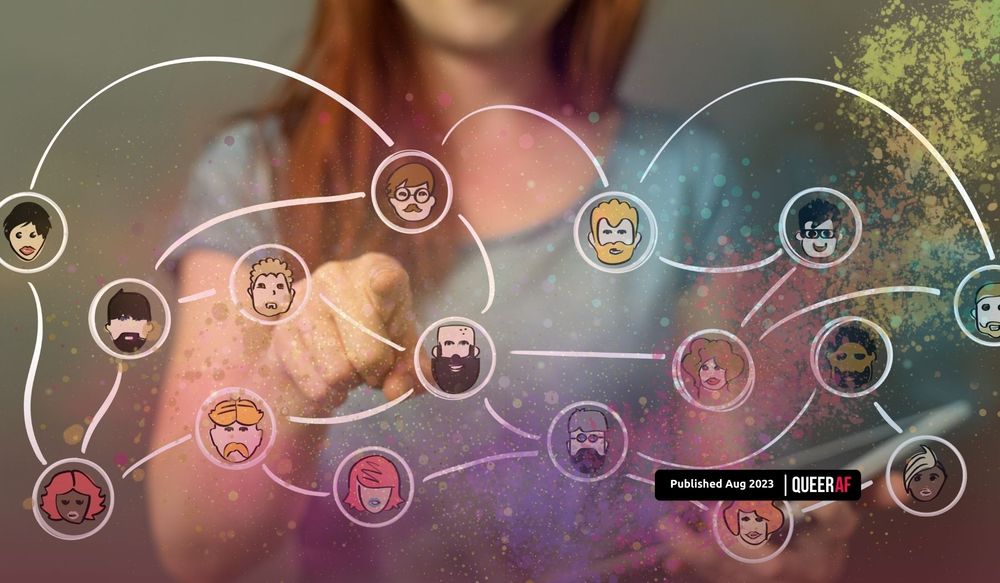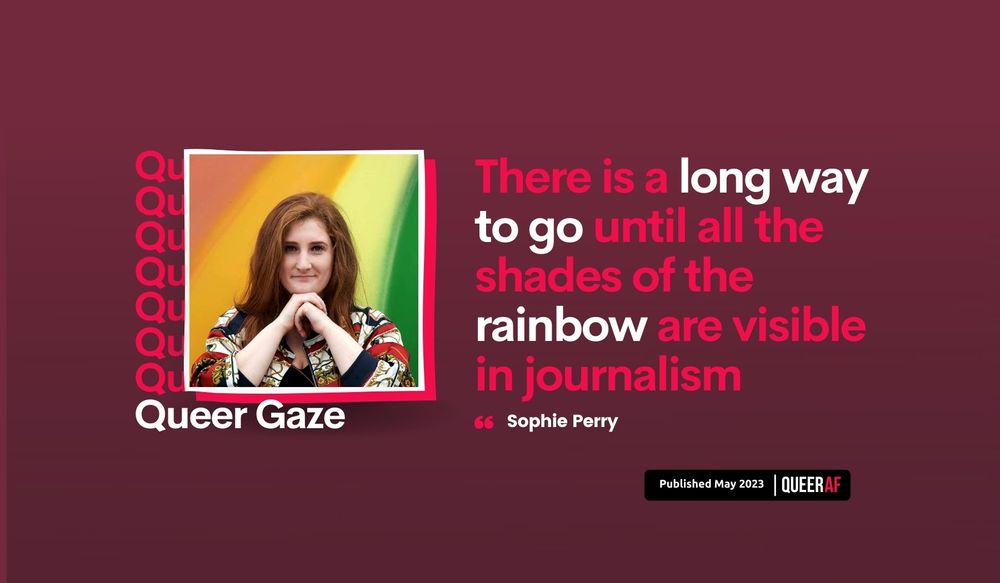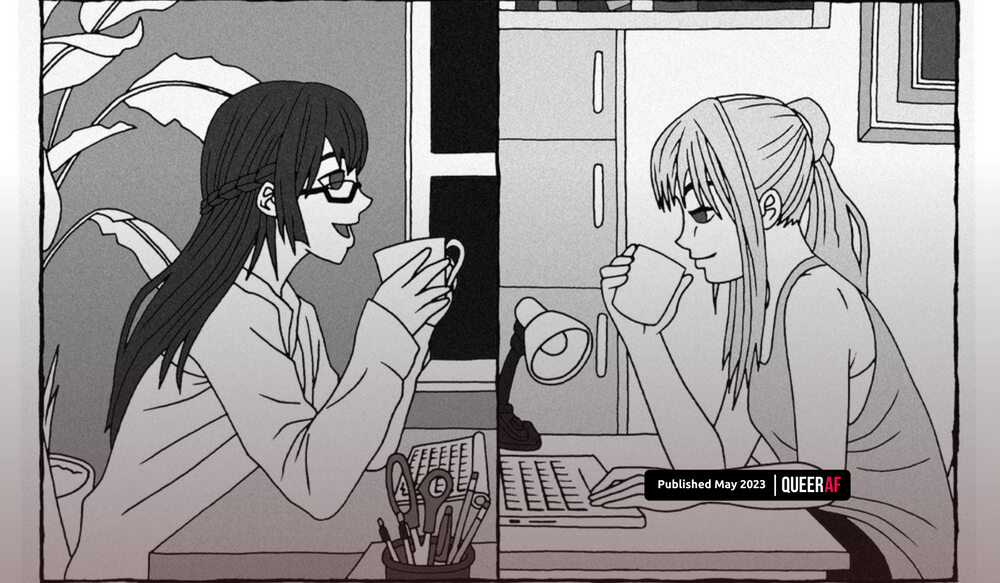
A nearby restaurant owner banned gay people. I persuaded editors to cover it. Then I was trolled, threatened, gaslighted and abused. This is how I handled it.
A big, newsworthy story about gay people being banned from restaurants on my doorstep was unfolding.
But there were few remaining LGBTQI-beat dedicated journalists or outlets left to cover it.
It almost went untold, which would’ve allowed the bans to continue unchallenged.
“The gay community, who were quick to judge even though we supported them during the [marriage equality] plebiscite, aren’t welcome.”
That was the message posted on the Facebook page of a Sydney vegan restaurant following the owner being trolled for being an outspoken Trump supporter.
Later it declared itself a “straight safe zone.”
The 'straight safe' vegan restaurant
It happened less than a month after a nearby eatery’s owner posted a meme depicting a gay stick person being kicked off a cliff with the words:
“Why should gay people have rights when we don’t even have the right to not have to put up with seeing them in public?”
Followers were encouraged to “share if you are against gay people” and to unfriend him “if you support these clowns”.
Previously, there were a myriad of outlets to cover this: legacy pink media outlets like SX and SameSame, BuzzFeed Australia's dedicated LGBTQI beat editor, HuffPost Australia’s dedicated LGBTQIA+ section. Then every single one of these folded.
Not only was nowhere covering this big Sydney story - Pink News UK covered it before anywhere in Australia did!
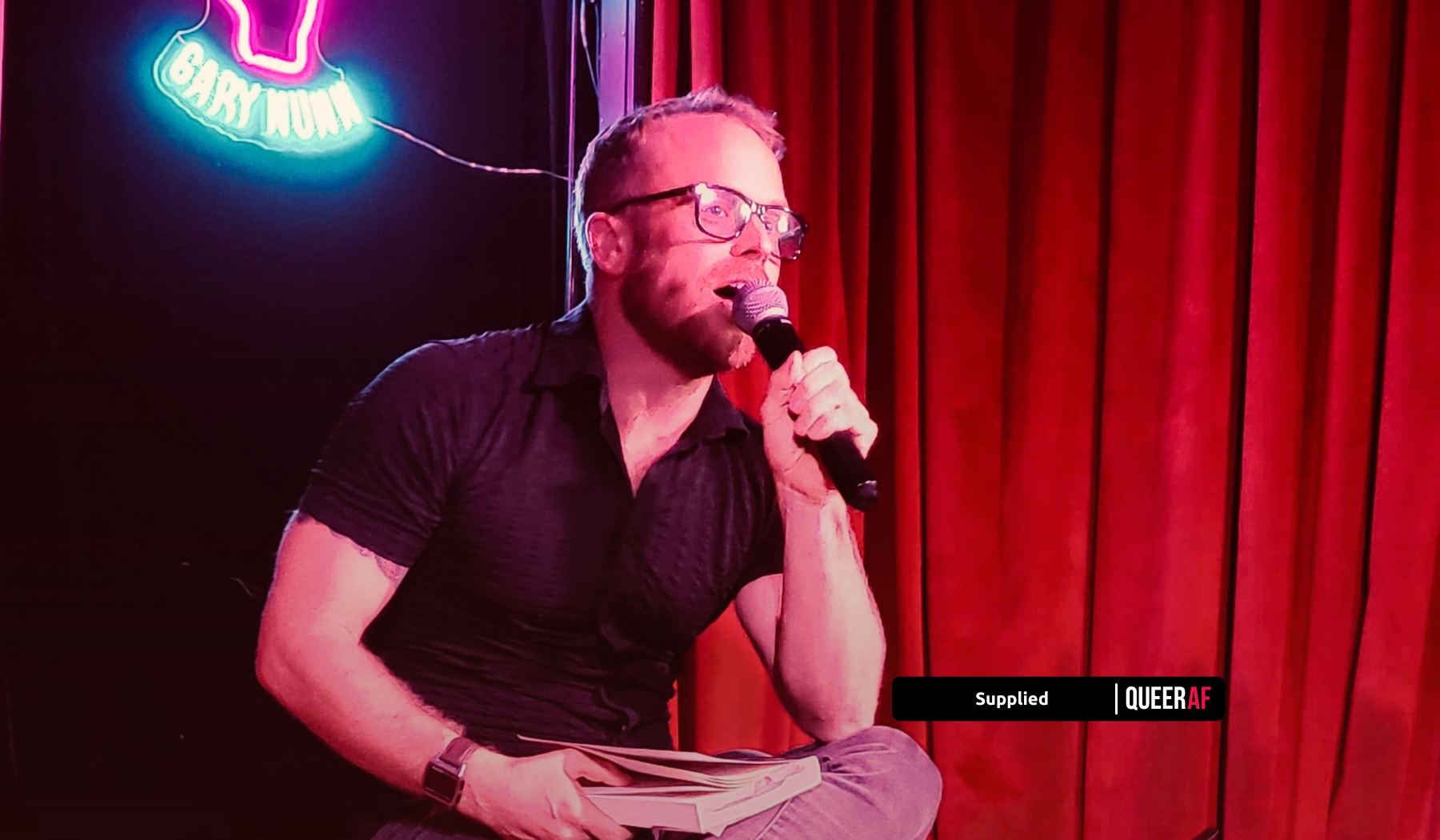
Why some LGBTQIA+ stories go untold
There’s no shortage of in-house LGBTQIA+ journalists at Australia’s media outlets - but they stick to their assigned beats - education, health, politics etc - because no newspaper currently includes an LGBTQIA+ dedicated beat.
Once the queer story has been told for that day’s edition, it’s seen as overkill to cover another queer story for a couple of days.
I also sometimes wonder if the in-house LGBTQIA+ journalists are reluctant to be seen as ‘agenda-pushing’, fearing it’ll impact their perceived credibility as an unbiased, objective reporter or editor.
LGBTQIA+ stories matter, and if we won't write them - who will?
This is where freelancers like myself often come in.
To remind outlets of their responsibility to report injustice and discrimination whenever and wherever it happens, irrespective of if you reported a story about drag queens yesterday.
So, as a freelance gay journalist, I wrote the story for the major Sydney newspaper.
I had to persuade tentative editors it was even worth covering by reminding them of the irony of this happening in a vegan restaurant in Waterloo, one of Sydney’s pinkest suburbs.
How I handled being threatened, gaslighted and abused
Afterwards, the vegan restaurant owner repeatedly threatened to sue me. He trolled and gas-lighted me with memes on the business's Facebook page.
One was of a drag queen with the words: “ALL WELCOME - contrary to what Gary Nunn wrote.”
He approached other local business owners, telling them I was a liar.
Months later, he loudly and humiliatingly verbally abused me in my local cafe. I was on the verge of calling the police.
Instead, I called my journalist union, the MEAA, and asked to take out insurance covering me for $1m in defamation fees.
It costs me $70 a month but is peace of mind; in Australia, freelance journalists can be sued personally and the publisher won’t cover any defamation fees like they will for an in-house. It pays to be responsible.
But there's a cost to leaving it up to freelancers to pick up the slack. I don’t have the protections against defamation, abuse and trolling that in-house journalists have.
This is why our stories, told by someone dedicated explicitly to the LGBTQIA+ round in-house - as BBC UK does - are crucial.
As part of our commitment to the sector, QueerAF has partnered with the LGBTQ+ Journalism Network to run this 'Journalist Like Me' content series and help develop a thriving network of queer media professionals. We're once again accepting pitches for this series.
➡️ Support our mission to change the media with a QueerAF membership
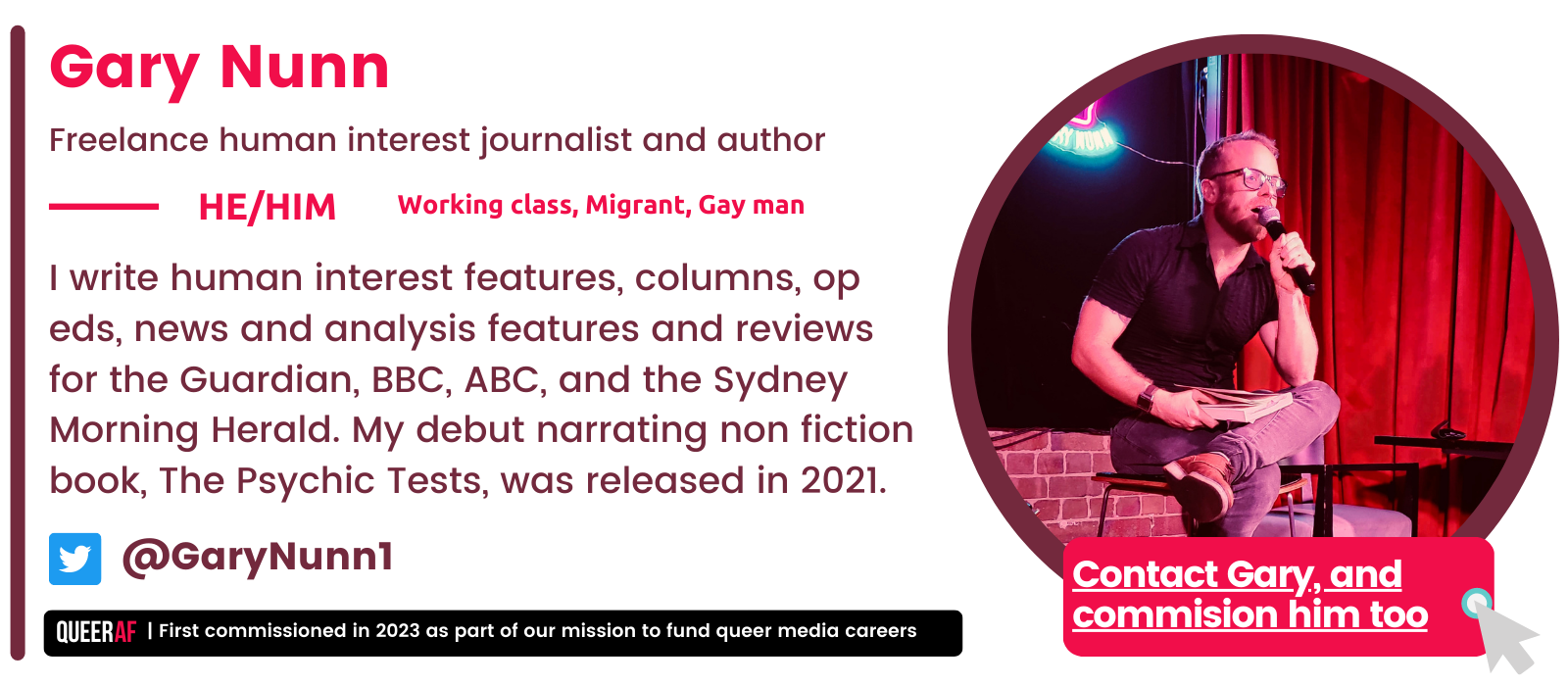
QueerAF is re-writing the way LGBTQIA+ journalists are funded
In the rush for clicks, the media is failing one of its most important duties - improving the very craft of journalism. Even established LGBTQIA+ journalists struggle to get time to sit down with their editors to grow and learn.
That's why we make time. This is what our writers say about the sub-editing and writing retrospective all our contributors get:
- "I found it a very useful in depth look at why we're writing the story instead of the usual faceless editing."
- "Great opportunity to understand the editing process, writing tips and tricks - a bucket full of creative advice!"
- "I loved the process and how helpful you've been to a novice writer."
QueerAF is a platform where creators, journalists and producers can get paid and commissioned directly by the QueerAF community. This, while we mentor them to build a career, work in the industry - and then change it.
Our approach is unique. Sessions like these take a great deal of time to set up and run. But we do them because they help our writers improve their craft.
We deliver what counts, not clicks for corporates. It lets us do this amazing work while giving you fresh queer journalism - from fresh queer journalists, like in this Journalist Like Me series.
Will you make these sessions possible and help us change the media?








